News in Brief
-
 Psychology
PsychologyMajority doesn’t always rule in teen booze use
Having one abstainer as a friend cuts teens’ odds of getting drunk and binge drinking, a study finds.
By Bruce Bower -
 Health & Medicine
Health & MedicinePoop-transplant pills treat intestinal infection
Frozen capsules stuffed with healthy gut bacteria from donated poop fight C. difficile infections.
-
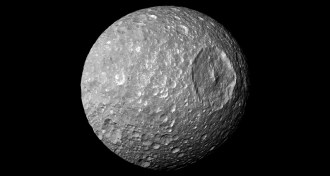 Planetary Science
Planetary ScienceSurprises lurk inside a Saturn moon
NASA’s Cassini spacecraft finds possible ocean or football-shaped core inside Mimas.
-
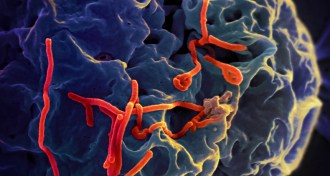 Health & Medicine
Health & MedicineEbola continues rapid spread in West Africa
Ebola continues to spread in West Africa, but some countries are poised to declare victory over the deadly virus.
-
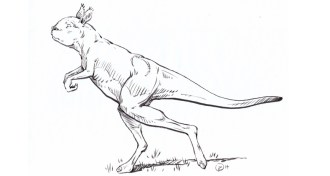 Paleontology
PaleontologyExtinct giant kangaroos tiptoed one leg at a time
Stiff spines, flared hips and other fossil clues suggest extinct, refrigerator-sized kangaroos stepped one hind leg at a time instead of hopping.
By Susan Milius -
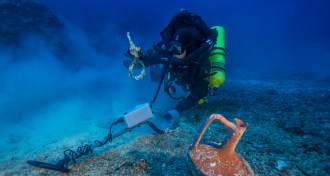 Anthropology
AnthropologyAncient Greek shipwreck found to be world’s largest
Special diving suits enable discovery that much of a nearly 2,100-year-old Greek vessel and its cargo survive.
By Bruce Bower -
 Health & Medicine
Health & MedicinePneumococcal vaccine thwarts resistant infections in children
Since a new vaccine was introduced in 2010, the number of antibiotic-resistant pneumococcal infections in kids has plunged.
By Nathan Seppa -
 Health & Medicine
Health & MedicineDrug appears safe in children with C. difficile infections
Early test suggests adult med may work in kids with diarrheal disease.
By Nathan Seppa -
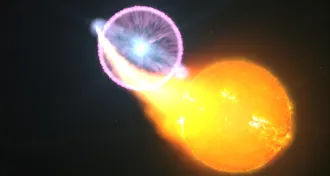 Astronomy
AstronomyHigh-energy radiation from stellar explosions explained
The dance of a stellar duo might explain why some novas emit gamma rays.
-
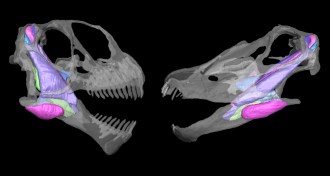 Paleontology
PaleontologyPlant-eating dinosaurs coexisted by munching different vegetation
Differences in skulls allowed sauropods to coexist in an arid landscape by enabling the dinosaurs to tackle different plants.
-
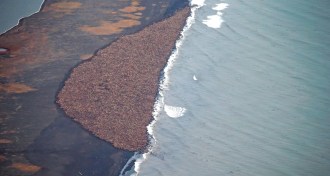 Animals
AnimalsLacking ice, huge walrus herd congregates on Alaska shore
A large group of walruses has hauled out on the beach near Point Lay, Alaska. The animals have been forced onto shore due to a lack of sea ice in the region.
-
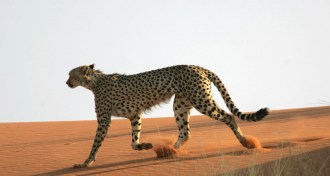 Animals
AnimalsLooking for, not catching, prey drains big cats’ energy
For some big cats, ambushing prey in quick attacks may ease the high energy cost of hunting, new studies show.
By Meghan Rosen